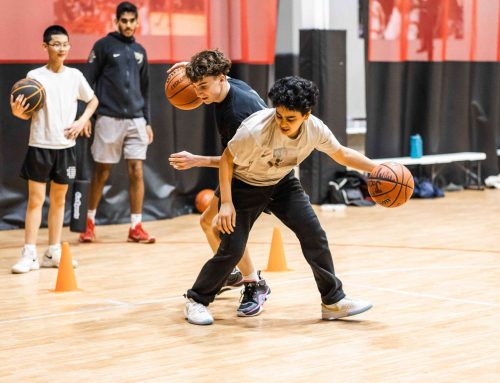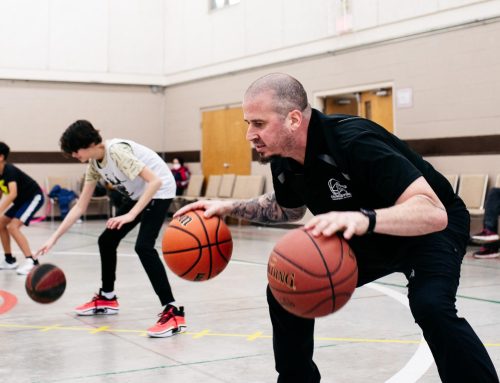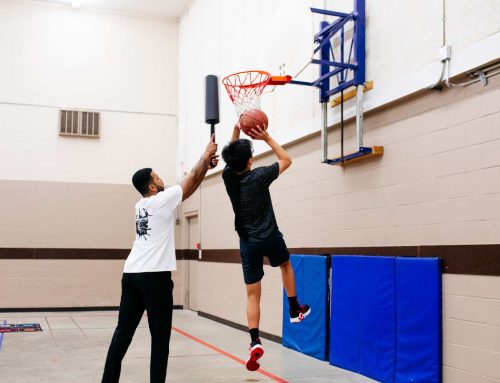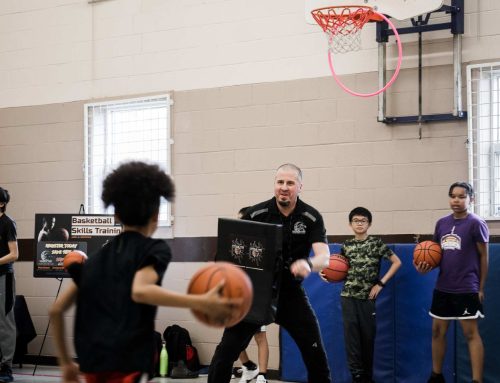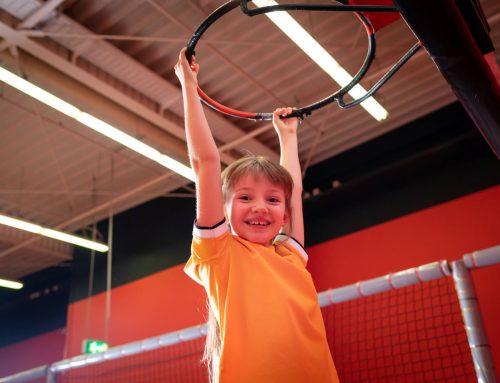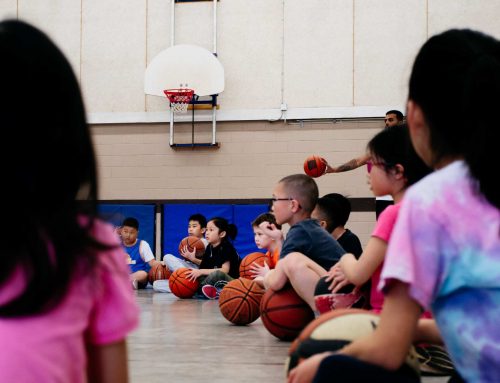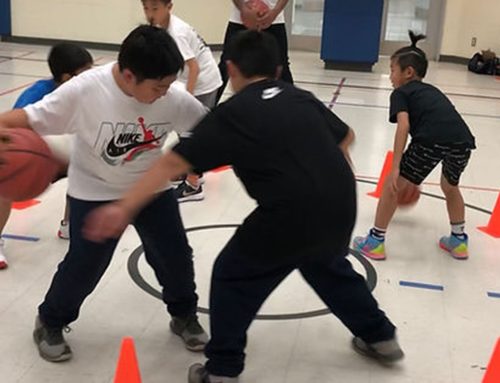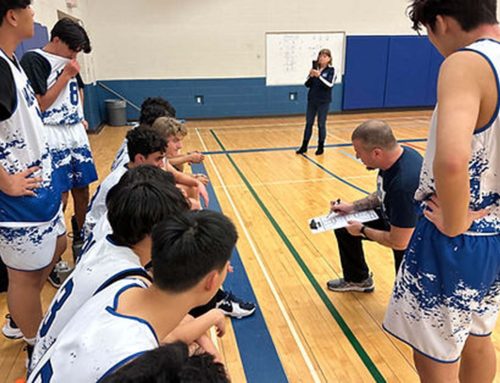One of the essential basketball skills that young athletes must master is passing. It fosters teamwork, facilitates ball movement, and creates scoring opportunities. Mastering passing skills enhances communication and cohesion among teammates and cultivates unselfishness and awareness, crucial qualities for success in both individual and team-oriented aspects of basketball.
Youth basketball camps and house leagues provide structured environments where young athletes can learn and practice passing fundamentals under the guidance of experienced coaches. These programs emphasize teamwork, communication, and decision-making, fostering a deeper understanding of when, where, and how to pass effectively in different game situations.
Here are some ways youth basketball camps and basketball house leagues build strong foundations in passing:
Fundamental Techniques
Coaches at basketball camps and house leagues teach players the proper mechanics of various passes, such as chest passes, bounce passes, and overhead passes. They emphasize essential elements like hand placement, footwork, and follow-through to ensure accuracy and consistency in passing. Youth basketball camps and house leagues often implement a progressive approach to skill development, starting with basic passing drills and gradually advancing to more complex exercises as players’ proficiency improve. This structured progression allows young athletes to build a solid foundation in passing techniques over time. Furthermore, coaches provide individualized feedback and guidance to players, helping them identify areas for improvement and refine their passing techniques. Through these, young athletes can address specific weaknesses and make necessary adjustments to enhance their passing abilities.
Repetitive Drills
Repetitive drills help players develop proficiency, confidence, and decision-making abilities in various passing situations. The drills are designed to isolate specific aspects of passing and provide players with ample opportunities to practice and refine their skills. Youth basketball camps and house leagues incorporate repetitive passing drills into practice sessions to reinforce muscle memory and improve passing proficiency. These drills typically include stationary passing, partner passing, and passing on the move to simulate different game situations. Stationary drills focus on basic passing techniques such as chest passes, bounce passes, and overhead passes, helping players develop a strong foundation in fundamental passing mechanics. Partner passing drills and passing on the move simulate real-game situations and help players improve their passing accuracy, timing, and communication with teammates. They require players to read the defence, make quick decisions, and execute accurate passes under pressure.
Game-Like Scenarios
In youth basketball camps, coaches create game-like scenarios during practice sessions to help players understand when and where to pass the ball effectively. Incorporating scrimmage games into practice sessions allows players to apply their passing skills in a dynamic and competitive environment. During scrimmages, players must read the defence, communicate with teammates, and make split-second decisions on when and where to pass the ball. This mimics the pressure and intensity of actual games, helping players to develop confidence and composure in their passing abilities. Additionally, small-sided games, such as 3-on-3 or 4-on-4, provide players with more opportunities to touch the ball, make decisions, and practice passing skills in a condensed playing space. These games emphasize spacing, off the ball movement, and ball movement, encouraging players to share the ball and create scoring opportunities through effective passing.
Decision-Making Skills
Coaches teach players the importance of making quick and accurate decisions when passing the ball. They help players recognize defensive schemes, anticipate passing lanes, and read the movements of teammates and opponents to make informed decisions on the court. Through basketball house leagues, young athletes can test their skills against worthy opponents. During games and practice sessions, players must make quick decisions about when and where to pass the ball. By experiencing game-day pressure in a controlled environment, players learn to assess options, anticipate defensive movements, and execute appropriate passes. Coaches at youth basketball camps may also organize role-playing exercises where players take on specific positions or roles within offensive sets. This allows players to experience different passing situations from multiple perspectives, fostering a deeper understanding of team dynamics and facilitating more effective communication and decision-making on the court.
Coaches at youth basketball camps and basketball house leagues usually provide constructive feedback and positive reinforcement to players during practice sessions and games. They encourage open communication and collaboration among teammates to foster a supportive learning environment where players feel comfortable taking risks and learning from mistakes. Through various drills, game scenarios, and constructive feedback, coaches can help young basketball athletes build strong foundations in passing that will serve them well as they progress in their basketball careers.
